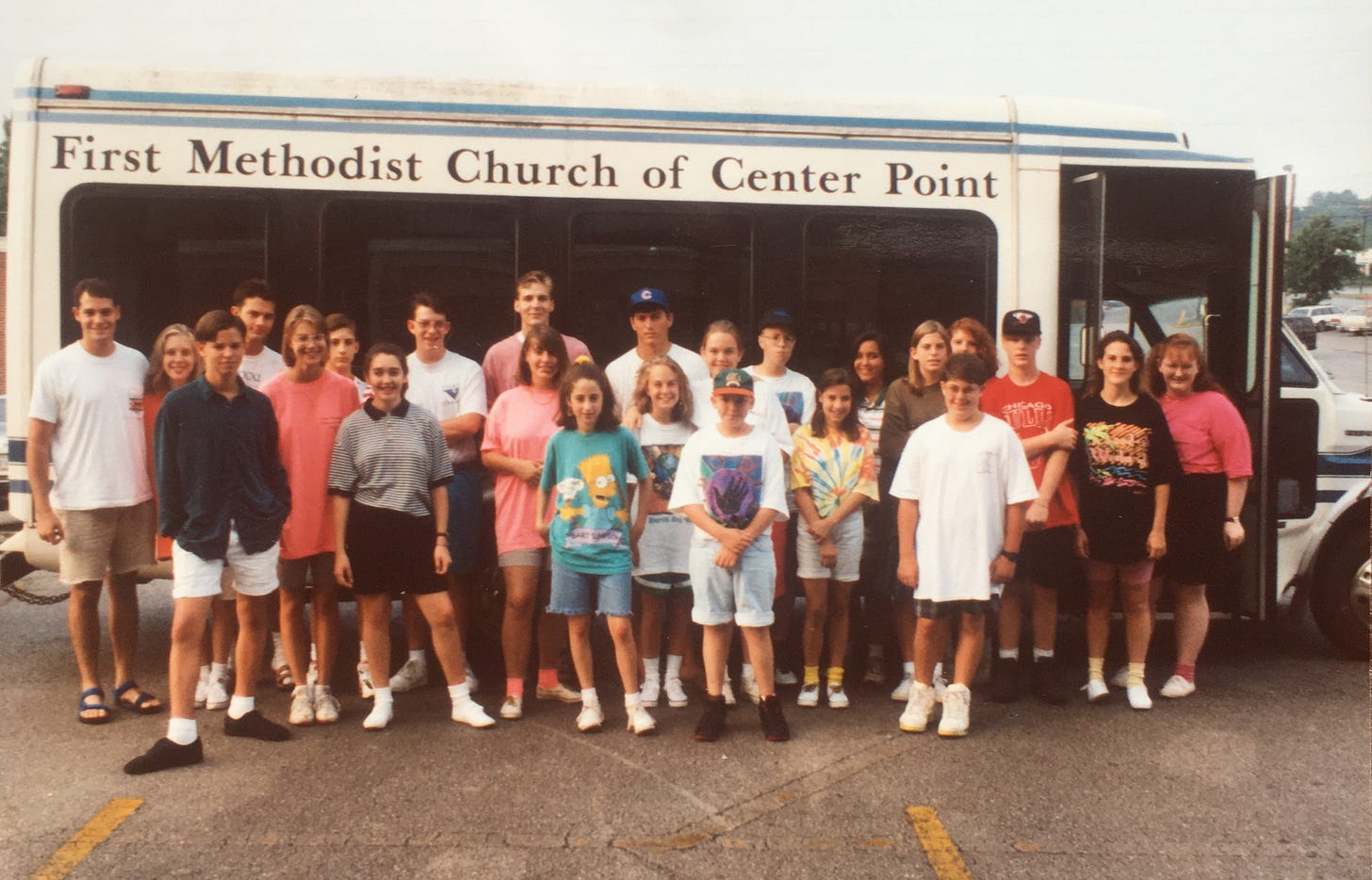I returned to BSC in the fall of 1990 with my Disney University Ducktorate Degree and a paper to write on my summer experience, in light of the principles described in the international bestselling business book, “In Search of Excellence: Lessons from America’s Best-Run Companies.” I was glad to be back on campus and it was good to again see friends that I’d made freshman year. However, I decided to get a job off-campus my sophomore year. I’m not quite sure of my motivation as my parents had emphasized that studying was to be my “job” during the school year. But my roommate was working part-time at a newly opened retail clothing store, and I was intrigued by the focus this seemed to offer him, as he had little time to waste between school and work. I decided to work at the same store. It provided a nice break from the books, additional opportunities to meet new people, feel professionally productive, and put a little extra money in my pocket. I could now add retail associate to my college work experience, in addition to attractions host.
But something still felt like it was missing even among my new friends, studies, and job. I even joined the concert choir, taking a risk at reconnecting with some of my early musical interests. And toward the end of the school year, I ran for a class seat on the Student Government Association (SGA). Around the same time, uninspired by my five-month exposure to retail, I interviewed for a job working with youth at a local United Methodist Church. I’ve already mentioned Birmingham-Southern’s Methodist roots and affiliation, and its emphasis on service. A number of my friends were involved in community outreach organizations, and a few were serving as youth directors in local churches and religious camps. As the founder of Methodism, John Wesley, was known for saying centuries before, “I felt my heart strangely warmed,” as I listened to my friends talk about their meaningful work and relationships. Ministry they called it. In all seriousness I did feel a part of my psyche open a little wider as I considered what it would be like to care more about others and not focus so much on myself.
I was offered the church position soon after being elected to student government. However, I resigned my representative seat as I quickly learned that Wednesday evenings were our primary student government meeting night, the same night each week I was also expected to be at church for “family night dinners” and youth activities. The SGA sponsor was miffed that I had run for a seat and was now resigning. But I felt assured that I was responding to something deeper and more important than student government and politics.
I was so energized by the notion that I now had a job to care for others. It felt like another domain of my mind and heart could now open. Sitting in class back at BSC, I would write the names repeatedly in the margins of my notes of the thirty-plus youth I was to get to know and serve. I called each of them individually to introduce myself and invite them to join me at church on Wednesday evenings for Bible Study or on Sunday nights for UMYF (United Methodist Youth Fellowship.) There was a warmth and receptivity from this group of young people. They were welcoming and they seemed to like me, no doubt meeting a personal need of my own for acceptance and belonging. I was able to give of myself freely with no real fear of scorn or rejection and encouraged them to do the same.
I’d say encouraging one another was a large emphasis of our group. I wanted these kids to know they were loved and cared about, and we often made time in our group programming for them to share positive things that they appreciated about one another. On a couple of occasions, I had their parents write letters to them letting them know how much they meant to them. Perhaps these could be considered ‘Kumbaya’ moments, but I didn’t care. I was well aware, at least within my own context, of how tough some folks could be in the world, and I wanted our group and time together to be uplifting and a respite from all of that. It’s not that all of our attention was completely focused on our group alone. We wouldn’t have been good Methodists if that were the case. We also participated in service projects for our church congregation as well as the larger community. And many of our programs and retreats were attempts to help us better understand and empathize with the lives of others in our midst or around the world who were challenged or suffering in some way.
*Thanks for reading and/or listening. Continue to my next post Youth Ministry. To read from the beginning please go to Why I'm Writing.
I love receiving your comments if you’d like to share publicly or just email me directly.





